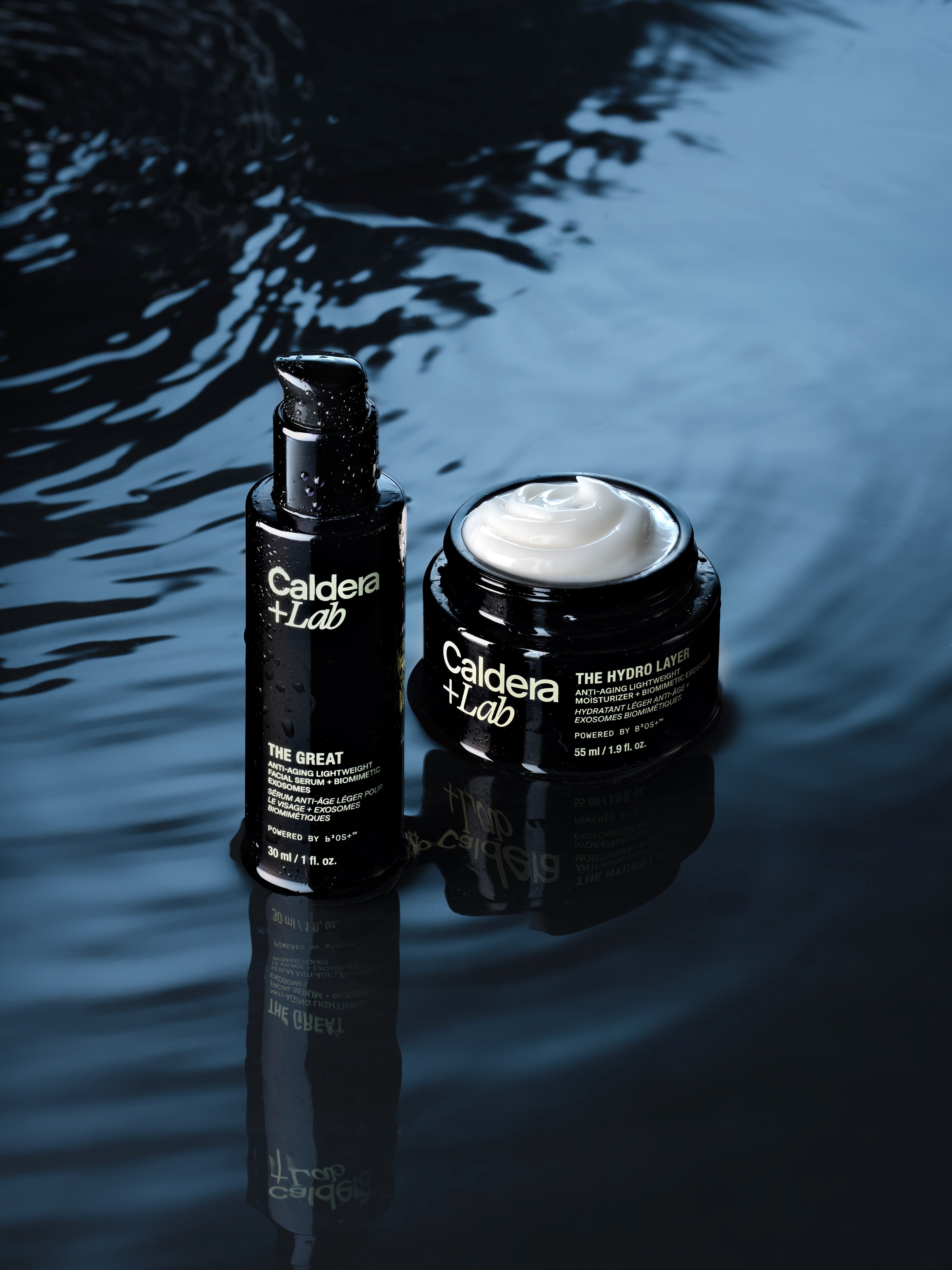Caldera + Lab has announced the launch of a new biomimetic exosome delivery system designed specifically to overcome the challenges of delivering actives into men’s thicker, oilier skin.
CosmeticsDesign spoke to Jared Pobre, founder and CEO of Caldera + Lab, to learn more about the patent-pending technology and its potential impact on industry innovation in biotech-driven formulations for male grooming.
Built for men’s skin
Development began in 2021, two years after the company’s launch, with the R&D initiative focusing on the structural and hormonal differences in men’s skin.
“Men’s skin is 25% thicker, produces twice as much oil, and is regulated by testosterone,” Pobre said, which are “considerations that demand different delivery mechanisms than traditional skincare.”
The research integrated ethnobotany, dermatopharmacology, and molecular delivery science to identify clinically proven plant-based actives, but the company encountered a significant delivery barrier. Many of the bioactives were too large to penetrate the dense structure of men’s skin.
“This led us to work to develop biomimetic exosomes that are 1,000 times smaller than skin pores,” he said, “specifically engineered to navigate men’s unique skin architecture.” The exosomes, he explained, mimic natural intercellular communication to guide encapsulated actives to targeted dermal layers.
Exploring the results of clinical testing on performance
Clinical testing performed by Caldera + Lab, including studies conducted on skin grafts, showed its exosome delivery system enables up to 20 times more active ingredient penetration compared to conventional methods.
“By comparing fenugreek and longjack root delivered by our plant-based exosomes versus conventional delivery methods, we found the exosomes guided by these actives resulted in significantly deeper penetration and absorption,” Pobre explained.
The findings, he added, represent a shift in formulation strategy. “Rather than overwhelming the skin with high concentrations and hoping some penetrates, we can achieve superior results with targeted delivery of optimal amounts to specific dermal layers.”
According to Pobre, Caldera + Lab’s internal testing also showed the exosome-delivered plant actives outperforming widely used ingredients such as collagen and synthetic retinols, “but without the side effects or ramp-up time that retinol typically requires.
The company’s approach marks a shift away from bulk concentration strategies. “We’re moving from ‘how much active ingredient can we pack in’ to ‘how precisely can we deliver ingredients where they need to go,’” he said.
Scaling biotech for consumer products
While exosome delivery has been explored in medical and biotech applications, it is still relatively unexplored in consumer skin care, Pobre noted. Therefore, he explained, scaling the innovation for mass-market use involved substantial time and capital investment.
“Once the R&D phase is complete, biotech reduces sourcing and manufacturing complexity,” he said. “Unlike wild-harvested botanicals, lab-produced ingredients eliminate overharvesting concerns and contamination risks through controlled clean room protocols.”
This approach also supports sustainability goals and manufacturing precision. “We can also create ultra-concentrated actives that deliver more potency in smaller doses,” Pobre added.
Gender-specific formulation pipelines on the rise
As more brands explore biotech delivery platforms, Pobre believes the market will see both standardized and gender-specific innovation pipelines emerge. “Biological differences are significant enough to warrant tailored approaches,” he said.
He expects biotech delivery systems to become more common across the category but emphasized the need for targeted R&D. “We’ve always formulated first and foremost for men’s skin and its unique characteristics,” he said. “While many brands still offer generic formulas in masculine packaging, ours are built for men from the ground up.”





